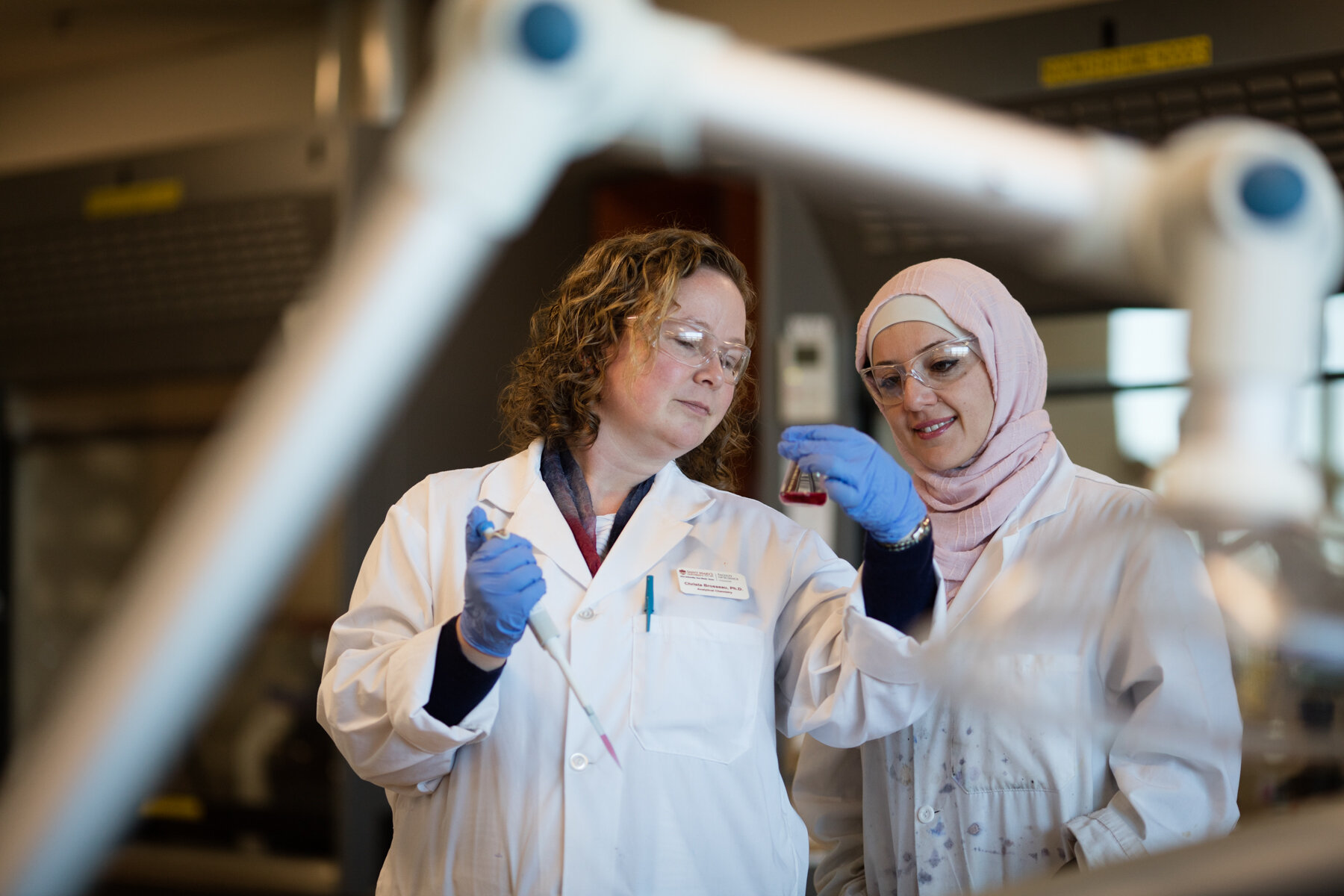Mental health research team: Top row: Michael Zhang (Management Science), Catherine Loughlin (Management), Pawan Lingras (Computer Science), Ethan Pancer (Marketing), Skye Stephens (Psychology)
Bottom row: Steven Smith (Psychology), Leanna Closson (Psychology), Mohammad Drira (Accounting), Meg Ternes (Psychology), Hai Wang (Computing Information Systems)
Middle: Rachael Collins (Criminology) Not pictured: Dalhousie University’s Jenny Chen (Management) and Claver Diallo (Industrial Engineering)
A new two-year research project at Saint Mary’s University, which aims to transform mental health care for youth in Canada, was granted $250,000 from the federal New Frontiers (NFRF) in Research Fund – Exploration stream. The Supporting Youth with Mental Health Conditions project will use machine learning and analytics to conduct their research.
The 13-member project team includes 11 members from the university and will be led by Dr. Michael Zhang, Management Science professor at the Sobey School of Business, and Dr. Steven Smith, Psychology professor in the Faculty of Science at Saint Mary’s University.
“Using machine learning techniques will help us analyze and integrate data about internalizing and externalizing mental health problems and show the need for unique care services,” says Dr. Zhang. “We hope to establish a coordinated system for mental health care that addresses the most common needs of each community.”
Most youth and families in Canada who need mental health care cannot receive appropriate care in their communities due to a variety of barriers.
“Addressing youth mental health issues is one of the most important challenges facing our society,” says Saint Mary’s University President, Robert Summerby-Murray. “We are proud to see so many faculty from across our campus, from so many disciplines, coming together to address this challenge with a researched, evidence-based approach.”
In 2015, the Mental Health Commission of Canada (HCC) reported that at least 75% of mental health problems and illnesses appear in childhood and adolescence. Approximately 5% of male youth and 12% of female youth, aged 12 to 19, have experienced a major depressive episode, and only a ratio of 1/6 children get the needed mental health services (MHS) from 15-20% of diagnosed cases.
The NFRF is a federal research funding program that fosters world-leading discovery and innovation by encouraging Canadian researchers to explore, take risks, lead, and work with partners across disciplines and borders. It supports research that defies current paradigms, bridges disciplines, or tackles fundamental problems from new perspectives.
For more information on NFRF visit:
https://www.sshrc-crsh.gc.ca/funding-financement/nfrf-fnfr/news-nouvelles/2020/exploration-2019-recipients-eng.aspx















